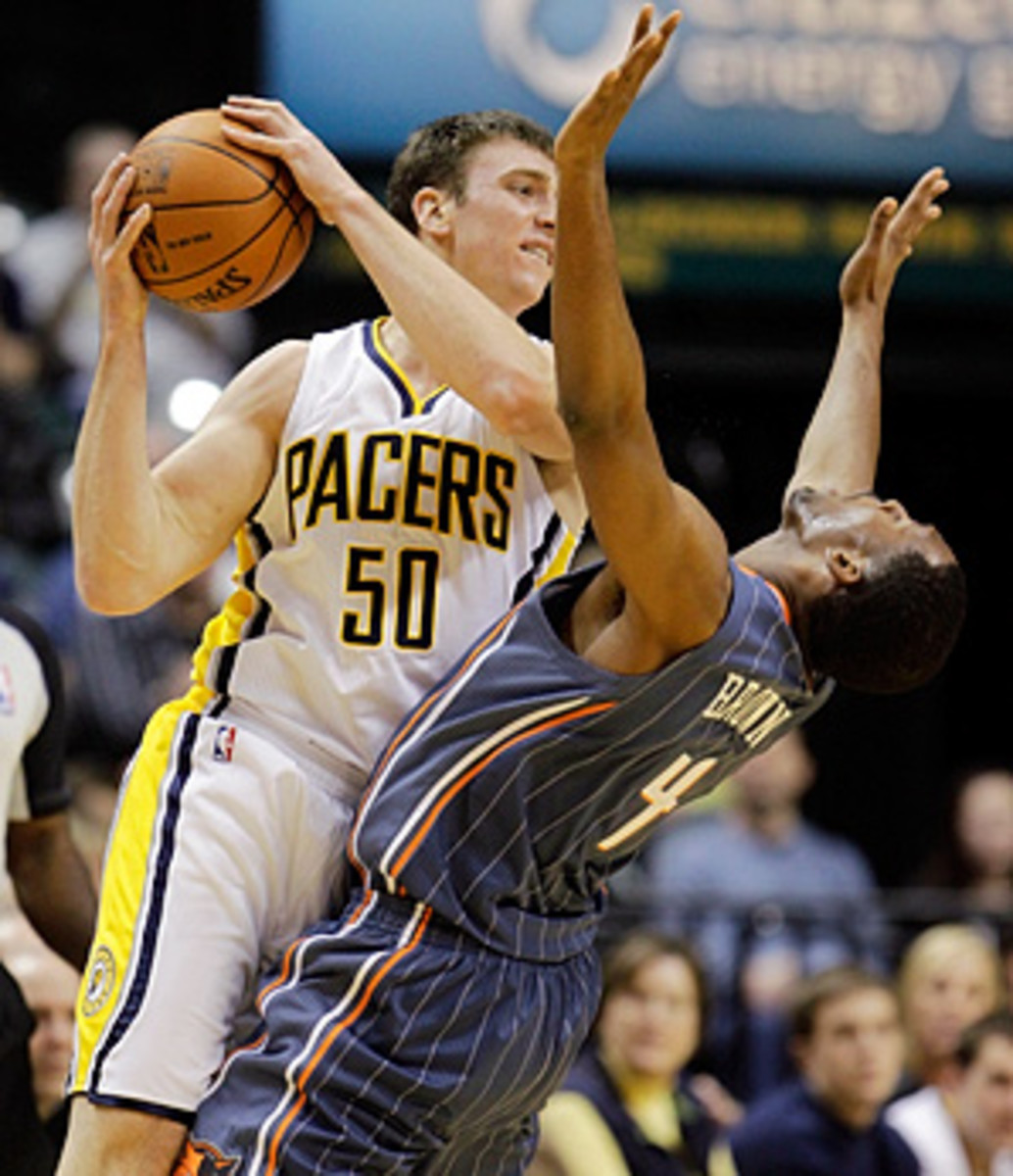Pacers have high hopes in East
Not so long ago Danny Granger was an All-Star scoring 25.8 points per game, and he was frustrated. Now Granger is averaging 14.9 points while shooting a career-worst 30.7 percent from the field, and he is smiling.
"Usually, if I was shooting the way I've been shooting, we'd have no chance,'' he said. "But we do now. And it's fun now, it's a lot of fun.''
The Pacers were out to a 6-2 start that ranked them No. 3 in the Eastern Conference coming out of the second full weekend of this shortened season. Their early schedule could not have been easier -- an unimposing pair of back-to-backs and a 5-1 record against teams that were in the lottery last spring -- but for the first time in years they're winning the games they ought to win, including an 87-74 throttling of the struggling Celtics on Friday in Boston.
The arrival of two-time All-Star David West is one reason for the strong start, but the Pacers should also be congratulated for something they didn't do: They didn't trade Tyler Hansbrough. Team insiders say they worried about signing West at power forward because his presence wouldn't leave enough minutes for Hansbrough to develop off the bench. But Pacers president Larry Bird got out front of the issue.
"We talked about that,'' said the 6-foot-9 West, who agreed to spend some time at center to make room for the 6-9 Hansbrough to play alongside him at power forward.
So far, Hansbrough (12.9 points in 27.8 minutes) is outscoring West (10.4 points in 27 minutes), but there is no power forward controversy. West is the superior player -- a better passer and a more accomplished leader with the experience and charisma that the young Pacers need. He and Granger anchor the starting lineup while Hansbrough defines one of the league's best second units. In 222 minutes, Hansbrough has generated zero assists while attacking the basket and the boards relentlessly.
"The other nine guys on the court start to play harder as soon as he walks on the court,'' Pacers coach Frank Vogel said of Hansbrough. "It's completely contagious. He has a motor like no other in the NBA, and when he steps on the court, our guys just play harder. When you're getting hustle plays every third or fourth time down the court, it helps you win. He's just a winning player.''
West and Hansbrough each embody a team that competes, which can be traced back to Bird's anti-tanking policy. Over the last several years of rebuilding, Bird refused to enable his team to lose on purpose even though his strategy damaged Indiana's position in the draft. The Pacers went 27-13 in the final month of three full seasons under coach Jim O'Brien, who was replaced last January by longtime assistant Vogel. As a result, they would never pick higher than No. 10, but they learned to fight regardless of their record.
"It would have backfired if we would have tried to tank games,'' said Granger, the small forward who was picked No. 17 by the Pacers in 2005. "First of all, it creates a losing mentality, and you never want to have that mentality as a team. We would have got a high draft pick, but who's to say it would have fit in for what we needed here? People are so high on thinking, 'Let's get the high draft pick.' But if you really look at your team and dissect the draft, you can get a player who fits your team and who you see potential in. That's what our ownership has done and it's paid off.''
Those picks have created a rotation that is poised to make the playoffs for a second straight year around Granger, Hansbrough (No. 13 in 2009), shooting guard Paul George (No. 10 in 2010) and center Roy Hibbert (No. 17 in 2008, his rights acquired by Indiana in the Jermaine O'Neal trade with Toronto). Young guards Darren Collison and George Hill were obtained via trade. The Pacers have plenty of depth -- including on their bench staff, where Vogel is backed up by potential future head coaches Brian Shaw and Jim Boylen, along with longtime Pacers assistant Dan Burke.
Granger believes that the Pacers should aim for a top-four seed after losing in the first round last year with a 37-45 record.
"Right now, I'm shooting it bad and we're shooting it bad as a team,'' he said of the Pacers' 41.5 percent rate from the field, 26th in the NBA. "When we start to execute more on the offensive end and we hit a rhythm, we're going to hit a big win streak because our defense is always going to be there. We've only been playing together for about a month, and in a normal season you play with each other for a month and then you start the regular season. We're still messing up plays on the offensive end, forgetting plays.''
One thing Granger doesn't want to hear from his young teammates is talk of how much better they can become in two or three years. He has learned how quickly things can change.
"I'm kind of nervous, because we're so talented that in two years we're going to have no money to keep this team together,'' he said with a laugh. "I really am nervous. It's always the truth, right? We've got two or three people coming up with extensions. We've got to keep them.
"We're not going to be able to keep it together for long, so we've got to take advantage of it while we have it. But we're having fun right now.''






